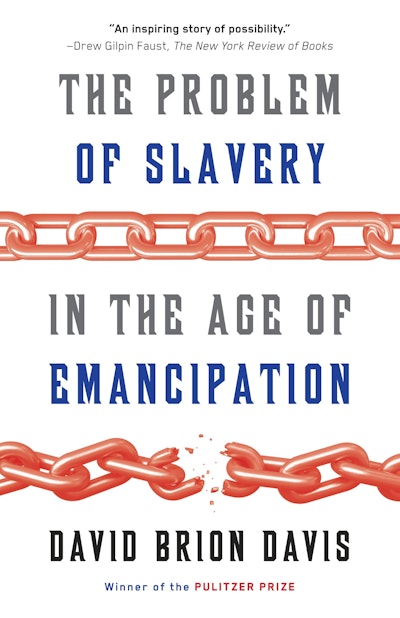- Published: 15 January 2015
- ISBN: 9780307389695
- Imprint: Knopf US
- Format: Paperback
- Pages: 448
- RRP: $38.00
The Problem of Slavery in the Age of Emancipation
- Published: 15 January 2015
- ISBN: 9780307389695
- Imprint: Knopf US
- Format: Paperback
- Pages: 448
- RRP: $38.00
"Less a political historian than a moral philosopher...his analysis...is subtle, wide-ranging and consistently judicious.... Moral progress may be historical, cultural and institutional, but it isn't inevitable. All the more reason this superb book should be essential reading for anyone wishing to understand our complex and contradictory past."
--Brenda Wineapple, The New York Times Book Review
"Remarkable erudition...continuing engagement with Davis's most important insight--that the emergence of an abolitionist movement in the 18th century amounted to one of the most astonishing moral transformations in human history.... Rather than drift with the scholarly tide, he swam against it.... Unfailingly subtle and insightful.... The shimmering achievement of Davis's great trilogy." --James Oakes, The Washington Post


